Tag: LGBTQIA
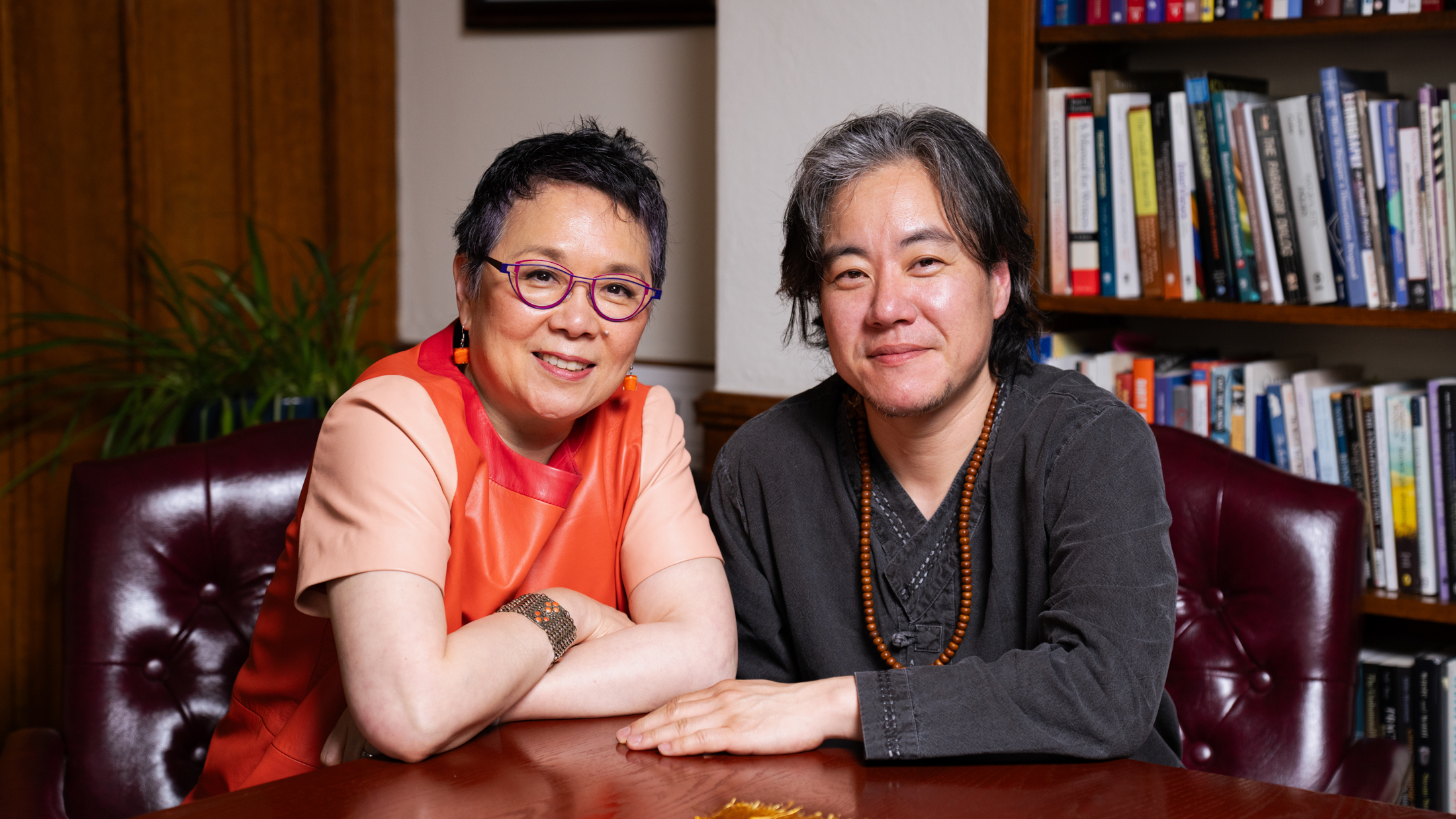
Queer Joy in Conversation: Dr. Su Pak & Sung Park
Dr. Su Yon Pak and Mudang Sung Park share the story of how they met, the philosophies that guide their work and identity, and how seemingly ordinary people—which both Su and Sung insist they are—leave legacies of hope and perseverance for the generations that follow.

Queer Joy in Conversation: Emmett, Andrea, & Ahri
Emmett, Andrea, and Ahri sit down for a conversation on family and joy, as well as their journeys in finding—and making—them. They begin their story in 2017, which Ahri and Andrea describe as a hectic but fulfilling year when their family began to come together. Andrea and Emmett had met through their work in trans advocacy in Texas, with Ahri occasionally accompanying Emmett to the state Capitol in Austin.
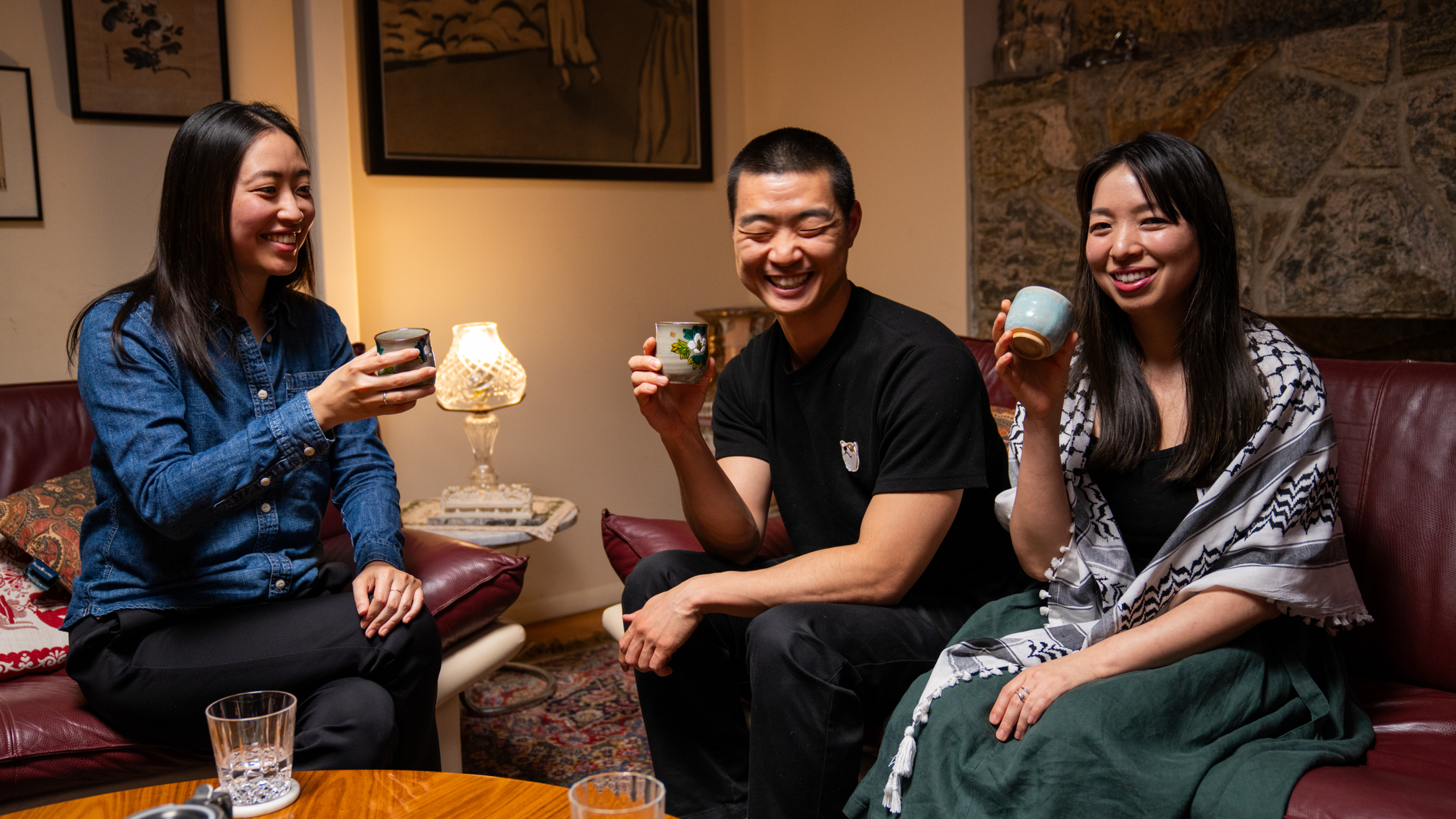
Queer Joy in Conversation: HA:N UMC
Rev. Sulkiro Song, pastor of HA:N UMC, joins congregants Lia and Paul in a conversation about their faith, their experiences with the Korean American church, and their journeys in navigating what can often feel like an interstitial space between queer identity and Christianity.
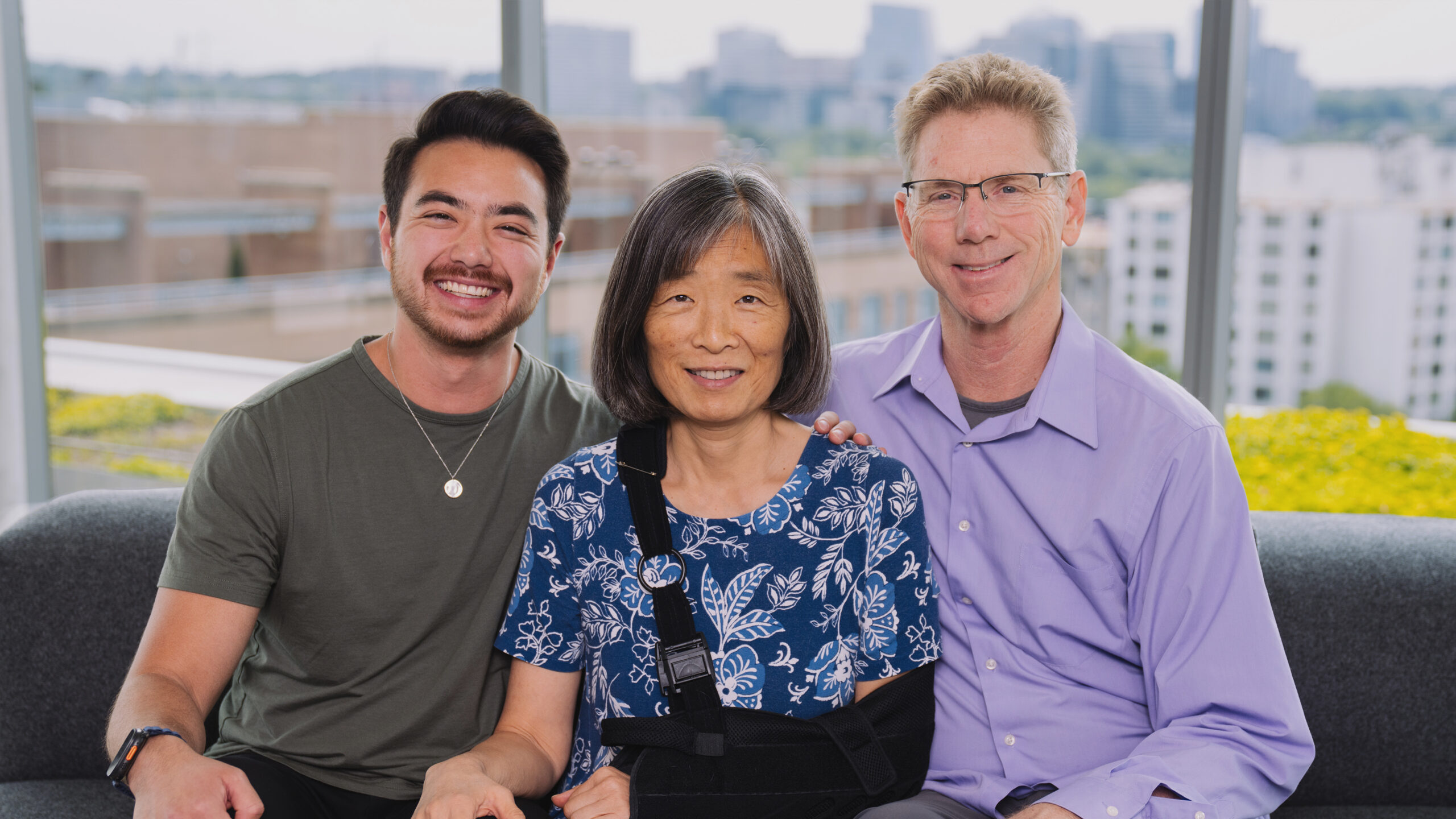
Queer Joy in Conversation: The Bailar Family
Schuyler Bailar, an activist, entrepreneur, and swimmer who made history as the first transgender man to openly compete in Division I swimming, sits down with parents Terry Hong and Gregor Bailar in a conversation about queer advocacy, identity, and growth.
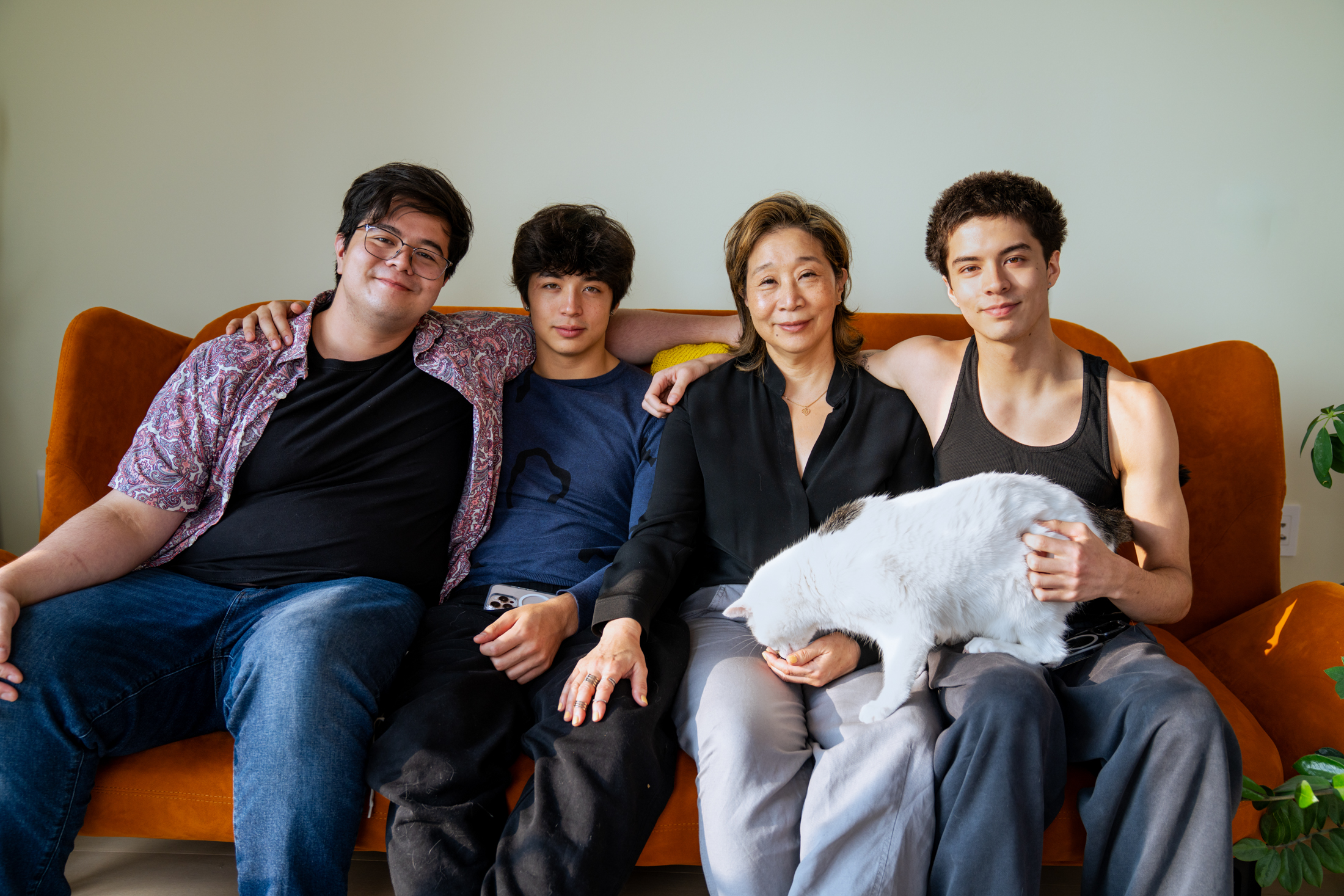
Queer Joy in Conversation: The Son Family
Diana Son, TV writer, producer, showrunner, and playwright, sits down with her three sons—Nate, Dash, and Wilder—for a conversation on family, love, and joy. Together, they reflect on Diana’s relationship with her partner Casey, and how that journey has intersected with their own growth as Korean American children of a queer parent.
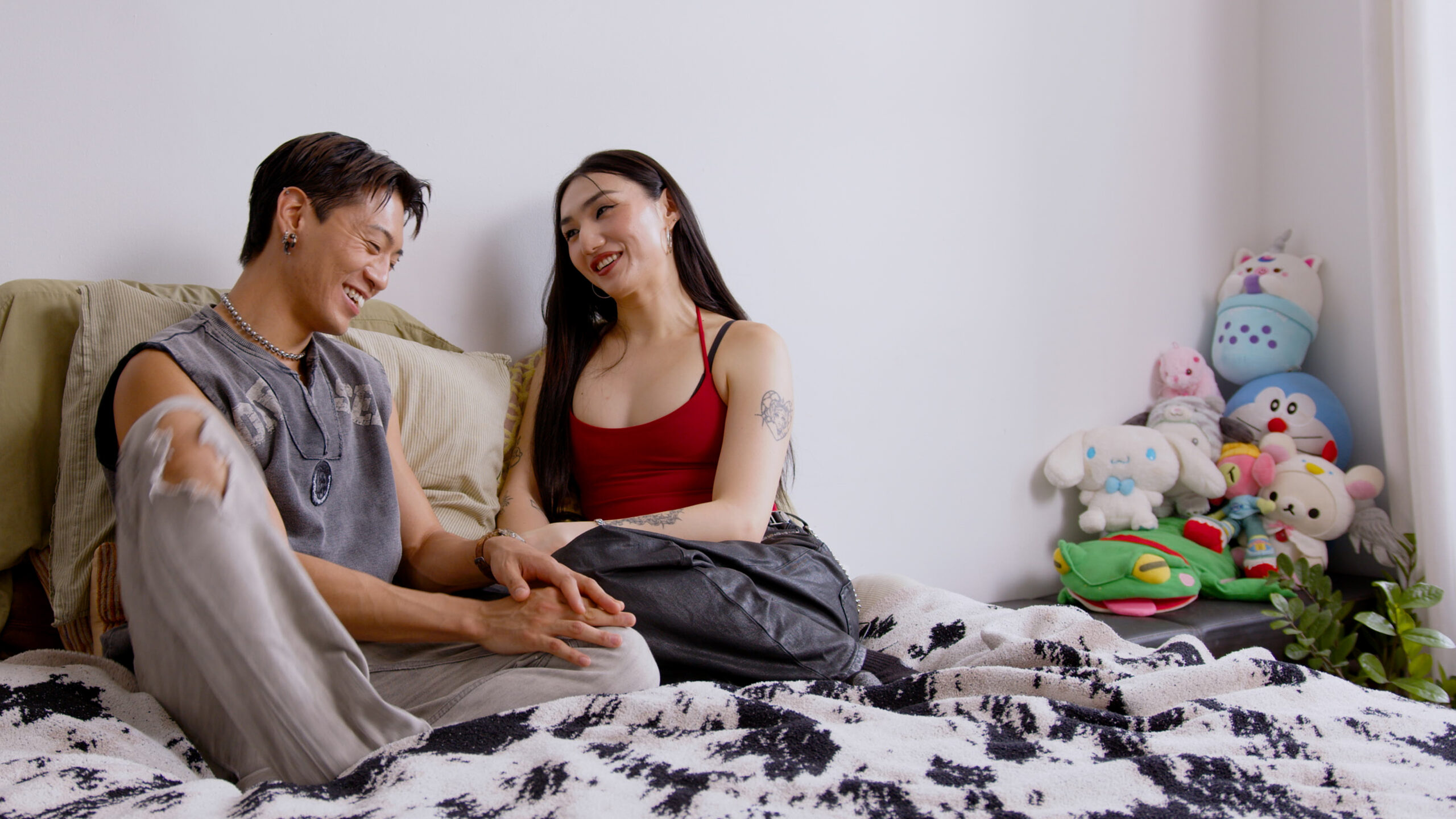
Queer Joy in Conversaton: Sammy & Jiwon
Sammy and Jiwon first crossed paths in Brooklyn nightlife, leaving deep impressions on one another: radiant confidence, an ability to light up a room, and joy that was infectious.

Judy Han & Jennifer Chun
Judy Han and Jennifer Chun were both born in Seoul, Korea; both also grew up in the United States. They talk about their individual experiences grappling with Korean and queer identity and the complicated interstitial space they’ve had to navigate in reconciling them. For Jennifer, “Korean American” was something she grappled with later in life; she recounts how in her childhood, perhaps owing to the socialization (and objectification) of Asian girls, she was more concerned with her gender. In college, she found the language and space to reflect on her gender identity, a process that she says is ongoing to this day. For Judy, the lines between Korean and Korean American gender and gender identity were always blurred; everything was so enmeshed with one another. They talk about how they knew they were queer from an early age but waited until college to express their identity for fear of worrying their parents. They sensed that their being queer would oftentimes disrupt Korean spaces, whether the space is church, family, or with others in their community. Though they’ve never wanted to make others uncomfortable, at a certain point, Judy realized that it was on others to put up with them, not the other way around. Both Judy and Jennifer acknowledge that there are “tensions which arise by accident” by being queer and Korean, but that they believe this discomfort can result in change for the better.

Jamie Issuh
Jamie Issuh born in 1991 in Champaign, IL, where she spent her early childhood; in the fourth grade, she and her family settled down in Irvine, California, after spending some time in Tennessee and Korea. As a queer Korean American Renaissance woman, she talks about grappling with parts of her identity which felt incongruous with one another—throughout her 20s, she grappled with finding spaces where her Korean heritage and her queer identity could coexist. Having always been an ally, she was surprised at how difficult it was to fully accept herself. She joined @queerasiansocialclub, a social collective focused on empowering the queer and trans Asian American community, in search of a place which could mediate her identities. After moving to Koreatown two years ago, she joined a Korean dance group comprised mostly of imo’s her mother’s age; though she is still finding the courage to be fully out, she has let herself be surprised at the kindness and grace which the imo’s have extended to her and her friends from QASC.

Sammy Kim
Sammy Kim (they/them) is a multifaceted individual: a queer artist, writer, healer, sex worker, community organizer, caregiver, and friend. From a young age, Sammy took on a caregiving role when their mother was diagnosed with Parkinson’s, moving in with relatives as her condition progressed. Seeing their mother struggle with her health, Sammy naturally came into a role of caregiving, grounding themselves in gratitude while extending empathy towards their family. By their pre-teen years, Sammy knew they were queer but felt compelled to hide it due to their Christian upbringing, even trying to “ungay” themselves to avoid eternal damnation. Operating out of fear, Sammy didn’t come out to their parents until their mother approached them about it, by which time they had been living openly for three years. Although their mother struggled to accept this part of Sammy, she affirmed her love, signaling a need for more time to understand.
Through sex work, what began as a caregiving role to provide for men seeking to feel wanted eventually evolved into a way for Sammy to heal from their early childhood trauma of sexual abuse. Their work became a way for them to deeply question their relationship to the sexualization tied to their identities. As Sammy continues to unravel the many intersections of their experiences, they choose with intention to feel alive in the present, living in the joy that stems from simply being themselves without distraction.

Andy Marra
Andrea Hong Marra (she/her), often known as Andy, is a trans activist and executive director of the Transgender Legal Defense and Education Fund (TLDEF). From an early age, she knew who she was as a Korean American and person of color. Adopted into a white family and growing up in a diverse neighborhood, she was raised to be in touch with her Korean heritage. However, there were fewer resources available about being transgender, leading to a journey of helping her parents understand and accept her queer identity.
With a commitment to service and leadership instilled by her parents, Andy began volunteering at LGBTQ organizations in her hometown. She realized that a life of service and advocacy was her calling, a path she’s dedicated herself to for the past couple of decades. Andy reminds us that activists often prioritize their work over themselves, but the spaces they create are for them too. She encourages us to leave behind our stories so that those who come after know they are not alone, asserting that leaving evidence of our existence is a powerful act of defiance.

Alexander Chee
Alexander Chee (he/him) is a bestselling author, essayist, and Professor of English and Creative Writing at Dartmouth College. Born in South Kingstown, Rhode Island, to a white American mother and Korean father, Chee’s journey is a tale woven with humor and wit. Describing his childhood self as a “financial crisis” due to being unplanned, he moved around the Pacific with his family’s fisheries business before settling in Maine, where he encountered racism from his peers.
It wasn’t until he moved to San Francisco in 1989 that he found a community. There, he not only met another gay Asian man for the first time, but also others who shared his mixed-race background. However, he was surprised to discover that even within this vibrant community, there were divisions; some gay bars excluded women, while others historically excluded Asian men.
Through his experiences, Chee emphasizes that political work extends beyond demonstrations and policy-making. It’s also about finding joy and connection in everyday moments like “going out dancing with friends, jumping on a stage for a favorite song, or just being goofy.” His journey underscores the importance of finding spaces where you belong, even within the complexities of identity and community.

Sulkiro Song
Sulkiro Song (she/they) is a queer, asexual, and aromantic pastor based in Virginia. Born in Seoul, Korea, to a family of ministers, their path seemed clear: carry on the family line and become a pastor. However, at age five, their grandfather declared, “women cannot be pastors!”—their first encounter with gender discrimination in ministry. Struggling to identify with the word “queer” and navigating their sexuality, Sulkiro felt misunderstood and out of place. They knew they were asexual since middle school but were often teased by peers. It wasn’t until much later, during a pride march, that they encountered the ace flag and finally felt like they belonged.
Despite the initial discouragement, Sulkiro attended seminary, not just to study religion academically, but also to help themselves through deep religious trauma—a process they describe as “ridiculously expensive therapy.” Although they didn’t take courses in preaching or pastoral care, they felt comfortable sharing what they were learning in seminary with their congregation. Today, serving as the pastor of HAN UMC, Sulkiro’s sermons encompass queer, feminist, and anti-imperialist themes, reflecting their commitment to inclusivity and justice.

Ellie Kim
Ellie Kim (she/her), known as SuperKnova (@superknova), is a genderfluid trans singer and musician based in NYC. Her relationship with music began early when her parents—like many Korean parents—enrolled her in piano lessons as a child. She hated it. It wasn’t until she picked up her first guitar that she fell in love with music and started dreaming of becoming a musician. Due to the lack of Asian American musicians in the mainstream—and even fewer queer Asian American musicians—Ellie didn’t think being a musician was a possibility, so she chose the “safe route” and pursued medical school. Ellie completed school and earned a medical degree, but she is not a doctor. She is now living life fully as both Ellie and SuperKnova. Music became the vehicle for her to process emotions and her queer identity, as well as to find a community that embraces her for who she is. So what’s her advice for the next generation? “Don’t listen to me! I’m just excited for Gen Z and Gen A to come up with their ideas and make the world better.”

Legacy Project Queer Joy Editorial Cut
Queer and trans stories often go unheard within the Korean American community. By creating space and sharing these narratives, we can build bridges, learn from one another, and celebrate the diversity within our ever-evolving community. Last year, our team had the honor of interviewing nine incredible LGBTQIA+ Korean Americans across generations. In the coming weeks, we are excited to share a special edition of the Legacy Project: “Legacy Project: Queer Joy,” where we explore what queer joy means to them and their journey to finding it. A big thank you to our interviewees for being so open and allowing us to share your stories with our community and beyond 🩷
Funding for this project was made possible by Korean American Community Foundation @kacfny with support from the Reva and David Logan Foundation @revaanddavidloganfoundation

David Hee Lee
David Lee’s journey from a troubled upbringing in LA, marked by his mother’s bipolar disorder and abusive behavior, to finding solace and a new beginning is a testament to resilience and the search for identity. Raised in a devoutly Christian, Korean American household, he faced intensified challenges after his siblings left and his mother was diagnosed with terminal breast cancer, bearing the brunt of her abuse while serving as her caregiver. Recognizing education as his escape, David excelled academically, earning a scholarship to Georgetown University and leaving his difficult past behind. There, he formed a life-changing friendship with Kelly, whose family eventually adopted him, offering the love and stability he didn’t have growing up. This act of adoption not only provided David with a new family but also helped him to start healing from his past traumas. Embracing his complex identity as Korean, LGBT, and adoptee, David’s story is a powerful narrative of overcoming adversity through the support of his chosen family and the strength of the human spirit.

Andrew Kim
Andrew Ungal Kim takes us on a poignant journey from his early years in Gyeonggi-do, Anyang-si, Korea, where childhood was spent playing soccer and badminton with neighborhood friends. Moving to a town just outside of Baton Rouge, Louisiana, at age 14, Andrew was initially enthralled by the American dream but soon confronted the reality of adapting to a new country with a different culture and language. As he navigated this challenging period, Andrew grappled with both his station as a new immigrant to the country, as well as a self-reckoning with his own sexuality. Raised in a Christian environment, he initially tried to suppress his feelings through prayer, hoping they would eventually fade away. However, at 27, he met someone in Baton Rouge, Louisiana, and fell in love, forcing him to accept his true self.
Andrew’s journey also reflects the complexities of being open about his sexuality. While he had a nine-year relationship, he struggled to reveal it to his own side of the family and friends, causing a sense of isolation. Eventually his mother discovered the truth, challenging their relationship. Through it all, Andrew is grateful for the acceptance he found in some corners of his community (including some members of his congregation), emphasizing the ongoing process of self-discovery and the importance of understanding and embracing one’s true identity.

Daniel K. Isaac
Daniel K. Isaac is best known for his ensemble role on the Showtime series Billions where he plays portfolio manager Ben Kim. But 2022 was a pivotal year for the actor and playwright, whose passion is the stage. He starred in The Chinese Lady at the Public Theater; he made his playwriting debut with Once Upon a (korean) Time for the Ma-Yi Theater Company; and he’s currently starring opposite Linda Lavin in You Will Get Sick at the Roundabout Theater. Daniel was born in Southern California, the only child of a single mother active in her evangelical Korean church. As a gay teenager, he struggled against his sexual orientation and even underwent conversion therapy. (Spoiler alert: It did not work.) In a candid, funny and yes, raunchy, conversation he opens up about his early sexual experiences, his estrangement from his father and his ongoing conflict with his mother, who disowned him when he was in college and is still “in the closet” about being the mom of a gay son — despite the fact that Isaac has turned many of her remarks into the viral hashtag #accordingtomymother. Prepare to laugh, cry and cover your young children’s ears.

Writers Block: Alexander Chee
Join us for our fourth edition of Writers Block with author Alexander Chee! You will be able to listen to Alexander speak more about his book and his personal story. Also get a chance to ask him your questions first-hand and get to know him in an exclusive Zoom room. Limited spots available.

Yuri Doolan
Dr. Yuri Doolan was born in an Air Force base to an American father and Korean mother who met in Korea during the 1980s.

Sung Tse
Sung Tse’s son brought up this haunting question the day he told his mother he did not identify as a female.

Peter Kim
Peter Kim grew up in New Jersey knowing he wanted to do one thing in life: act. A graduate of the Yale School of Drama, he made his Broadway debut in Thoroughly Modern Millie and has since built a solid stage, film and television career. This past fall, he astonished audiences with a funny and heartbreaking performance in the play Wild Goose Dreams at the Public Theater. Catherine and Juliana learn about Peter’s family (spoiler alert: his parents weren’t exactly thrilled about having a “gay actor son”), the casting challenges he’s faced, and his growing role as a mentor, teacher and activist.

Alex Myung Wager – Love/Hate Project
Born in Daegu, South Korea and raised in Albany, New York since he was four months old, Alex Myung Wager struggled with his identity as not only a Korean adoptee but also a gay man.

Andy Marra – Love/Hate Project
Andy Marra is a Korean American adoptee and leader in LGBTQI advocacy.

KRB Podcast: Pauline Park
In this month’s KoreanAmericanStory, partnered with KRB 87.7 FM, Pauline Park, a New York City-based LGBT and transgender rights activist, shares how she overcame multiple identity complexes through different stages of life as a transgender Korean American adoptee, and talks about the work she currently does with Queens Pride House and New York Association for Gender Rights Advocacy.

Andrew Ahn
Filmmaker Andrew Ahn reflects on his journey of merging his gay identity and Korean American identity.

Joanne Lee
Joanne Lee didn’t know how to react when her second child, Skylar, came out as transgender and found that she was unable to fully understand and accept his LGBTQ identity.

KRB Podcast: Clara Yoon
In this week’s Korean American Story with KRB 87.7 FM, Clara Yoon talks about her experience as a mother of a transgender son, and the support that’s available at PFLAG for LGBTQ individuals, their families, and friends.

KRB Podcast: Diana Oh
In this week’s Korean American Story with KRB 87.7 FM, actress and musician Diana Oh talks about the creative profession, her My Lingerie Play, and what it means to be a queer individual.

Clara Yoon
When her child, born female, came out to Clara Yoon and her husband as a boy, they decided to accept and support his transition.
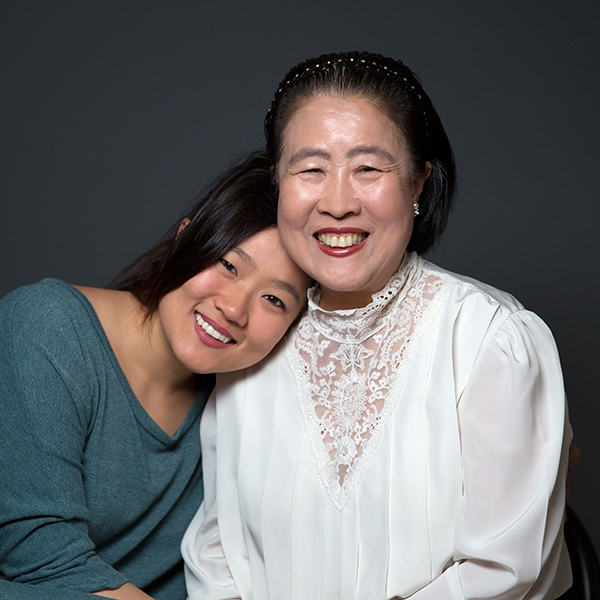
June Oh
June Oh, as interviewed by her daughter, Diana, never wanted to get married, but life took her in a different direction from what she expected.
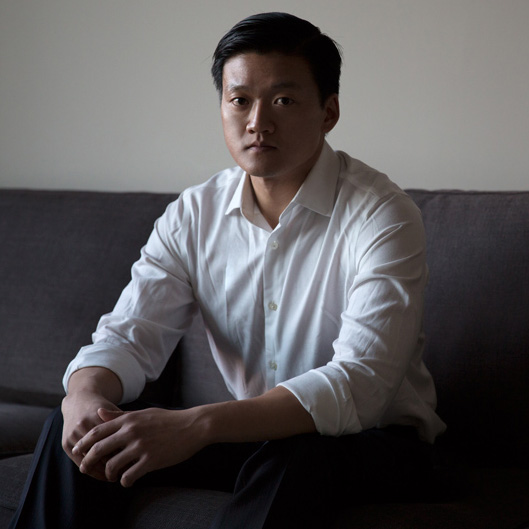
Introspective with Dan Choi
In this film Dan reflects on his journey as an activist as well as a gay man seeking acceptance from his mother and father who are conservative Christians. His father is a Southern Baptist minister in California. Dan talks openly about the challenges of being a full time activist, the emotional and mental toll which has resulted in him being hospitalized for mental health treatment, and the Christian values that enabled him to get through the difficult times even as he felt abandoned and ostracized by the Christian community in which he grew up.

Janice Paik
Janice Paik was born and raised in LA’s KoreaTown, and currently works and lives in downtown LA.

Haewon Latorre
Haewon Latorre was born in Korea, moved to Argentina as a toddler, then moved to NYC as a teenager.

Bridges
In popular culture, Asian Americans always seemed concerned with building bridges from old country to new country, first generation to second generation.
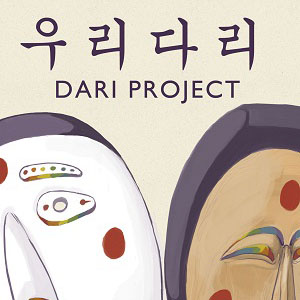
Like Roommates
Matt Chun’s story is from the Woori Dari book of the Dari Project, which is a collection of personal testimonials on the experiences of LGBTQ people of Korean descent.
KoreanAmericanStory.org has made, and will continue to make, intentional effort to share the stories from those whose voices have not been heard in the past by the mainstream Korean American community, including adopted, multi-racial and LGBTQ Korean Americans. If you’d like to share your story, please contact us
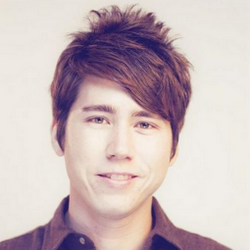
My Korean American Story: Mark Ro Beyersdorf
Ever since I left Southern California for college in Connecticut, my mother has always waited while I wind through the airport security line. She smiles and waves wildly until I make it past screening and turn around to wave goodbye one last time. Except once.

LGBTQ Korean American Voices

Profile of Lt. Dan Choi
You may already be familiar with the story of how Choi helped to bring about the repeal of “Don’t ask, don’t tell” (DADT), the U.S. policy that banned openly homosexual individuals from serving in the military.

Happy in Korea
“God,” said Paul, saying it like gaaaawd. “Korean guys are a bunch of homos!” I was about to tell him to pipe down, then decided it wasn’t worth the trouble. Your average Korean probably wouldn’t know what he was talking about any more than we knew what they were talking about.